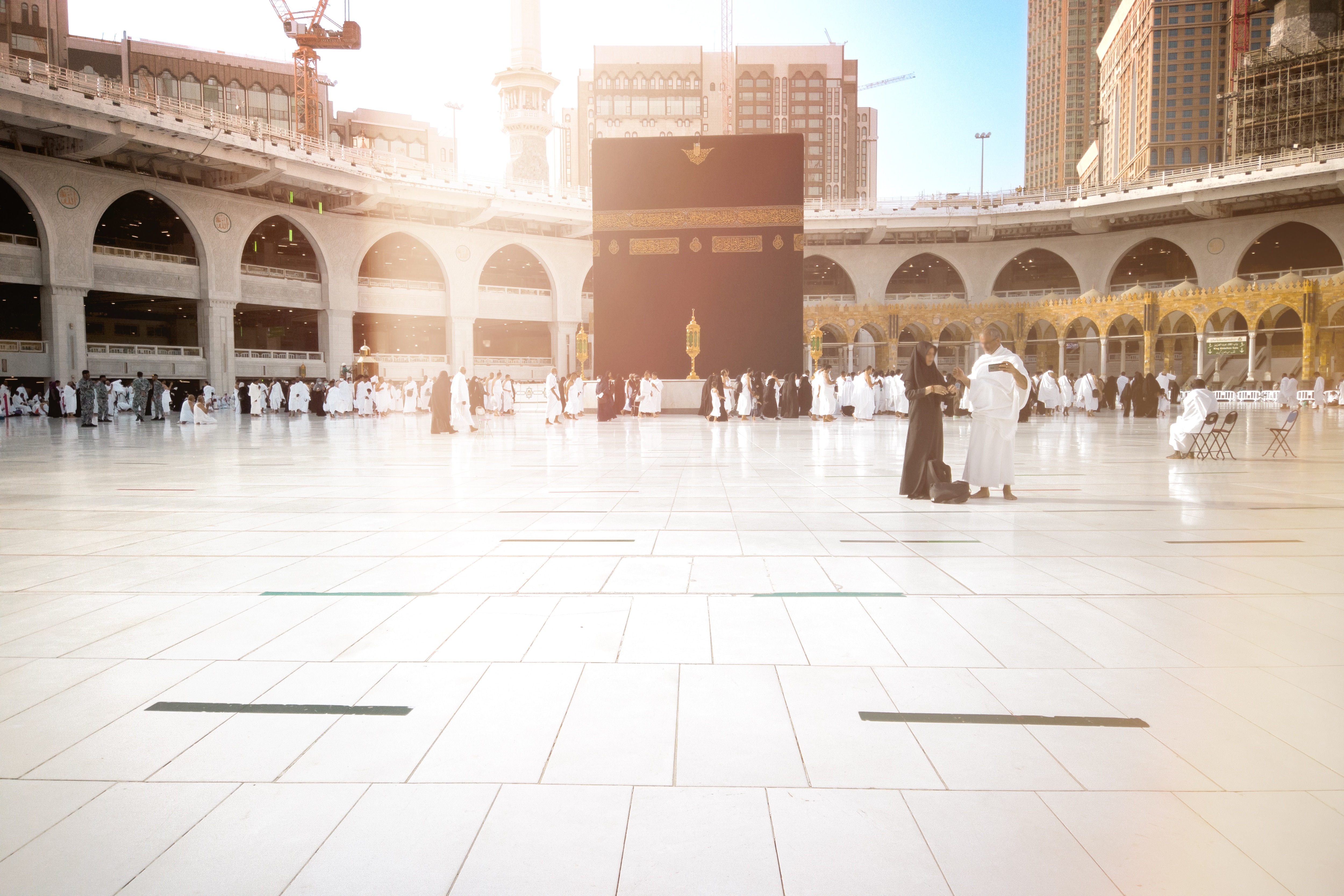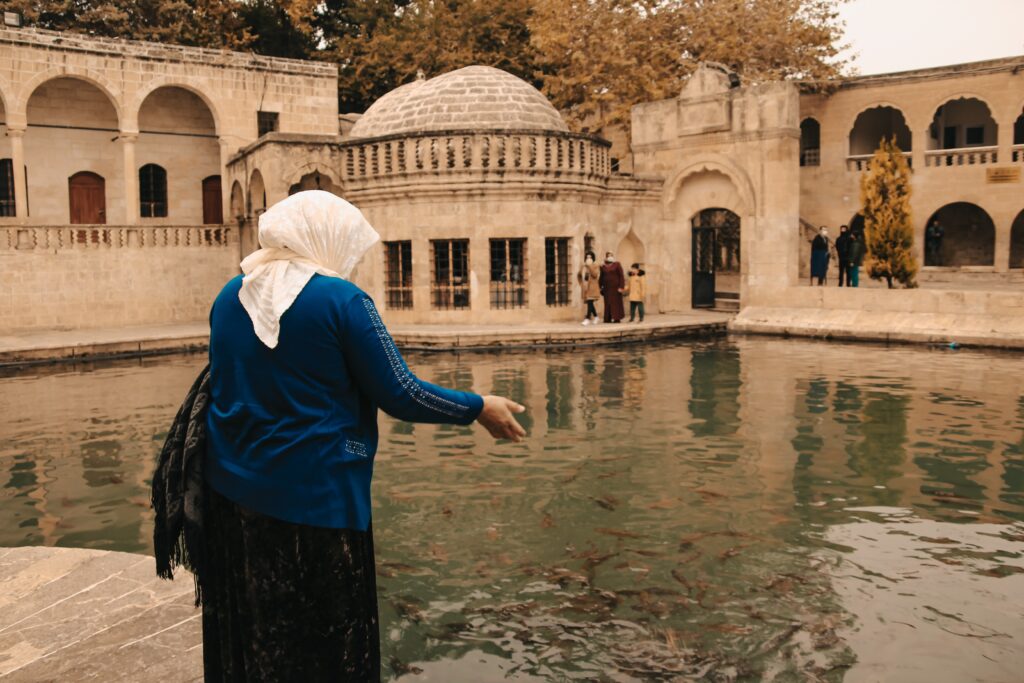Guidance regarding basic Islamic issues – which Hazrat Amirul Momineen, Khalifatul Masih Vaa has given on various occasions in his written correspondence and during MTA programmes – is being officially published below for everyone’s benefit

Divorcing out of anger
Someone from Yemen requested the guidance of Hazrat Amirul Momineen, Khalifatul Masih Vaa regarding three divorces (talaq) he had issued to his wife. Huzoor-e-Anwaraa, in his letter dated 23 August 2021, provided the following guidance regarding this issue:
“As a matter of fact, when a man divorces his wife, he takes this step out of anger at her behaviour that he considers unbearable and absurd. No man divorces his wife when he is happy with her. Therefore, divorce issued in such a state of anger is also effective.
However, if the person was raging to such an extent that he was in a state of insanity and he hastily divorced his wife without considering the consequences, but became remorseful once the state of madness subsided and he finally realised his mistake, then for this kind of situation, the Holy Quran has said:
لَا يُؤَاخِذُكُمُ اللّٰهُ بِاللَّغۡوِ فِيۡۤ اَيۡمَانِكُمۡ وَ لٰكِنۡ يُّؤَاخِذُكُمۡ بِمَا كَسَبَتۡ قُلُوۡبُكُمۡ ؕ وَ اللّٰهُ غَفُوۡرٌ حَلِيۡمٌ
“‘Allah will not call you to account for such of your oaths as are vain, but He will call you to account for what your hearts have earned. And Allah is Most Forgiving, Forbearing.’ (Surah al-Baqarah, Ch.2: V.226)
“Based on your description of the situation, it appears that you divorced your wife three times on different occasions, thereby exercising the right to issue up to the maximum number of three divorces as granted to a Muslim by the Holy Quran. Now, you do not have the right to reconcile [ruju‘] with your wife until the condition of حَتَّى تَنْكِحَ زَوْجًا غَيْرَهُ [i.e. ‘she marries another husband’ (Surah al-Baqarah, Ch.2: V.231)] has been fulfilled.
“Anyway, in the light of these points, you should evaluate yourself and decide about yourself whether your divorce was genuine or whether it falls into the category of vain [laghw].”
Body piercing
A lady from Germany asked Hazrat Amirul Momineen, Khalifatul Masih Vaa about the issue of boys and girls getting pierced on different parts of their bodies. Huzoor-e-Anwaraa, in his letter dated 23 August 2021, gave the following reply to her question:

“Besides rulings about what is lawful or unlawful, Islam also teaches that some things are good [tayyib] or non-tayyib and some things are vain [laghw].
“The custom of girls having their ears and noses pierced in order to wear jewellery has been around since the beginning and there is nothing wrong or unlawful about it. However, it is undesirable and absurd for boys to have even their ears or noses pierced.
“Everything has its limits. When one exceeds those limits, even a lawful practice can sometimes fall into the category of unlawful or laghw, which has been forbidden to the believers. (Surah al-Mu’minun, Ch.23: V.4)
“In any case, having the mamillae and other parts of the body pierced, which Islam has commanded to be veiled, is indecent and against the sharia. Other than that, piercing on the tongue and in and around the lips can lead to many types of diseases and infections. Therefore, in my view, even for women, it is only permissible to have their noses and ears pierced in order to wear jewellery, while also staying within the limits of purdah. Exceeding that would be considered laghw and unlawful even for them.”
First ten days of Dhul Hijjah and the last ten days of Ramadan
A murabbi from Denmark wrote to Hazrat Amirul Momineen, Khalifatul Masih Vaa and asked whether the first ten days of Dhu al-Hijjah carried more merit than the last ten days of Ramadan. Huzoor-e-Anwaraa, in his letter dated 22 August 2021, gave the following answer to his question:
“Neither the Holy Quran nor the ahadith of the Holy Prophetsa provide a comparative assessment of the excellence of these two months. However, the abundance of virtues and blessings of the two months and of the worship performed in them have indeed been described. These virtues have been described in general terms and sometimes the Holy Prophetsa has also described them based on the circumstances of the questioner or the situation.
“Based on those virtues described in the Holy Quran and the Hadith, in some ways, the last ten days of Ramadan, the acts of worship performed during them and the commands revealed during them appear to be more excellent, but in some respects, the first ten days of Dhu al-Hijjah and the acts of worship performed during them seem to be superior. Hence, the Holy Prophetsa said on one occasion:
سَيِّدُ الشُّهُورِ شَهْرُ رَمَضَانَ وَأَعْظَمُهَا حُرْمَةً ذُو الْحِجَّةِ
“‘The chief of all months is the month of Ramadan, and the most inviolable and sacrosanct of them is the month of Dhu al-Hijjah.’ (Shu‘ab al-Iman by Imam al-Bayhaqi, Fasl takhsisi ‘ayyami l-‘ashri min dhil hijjah, Hadith 3597)”
Ghusl after having touched a dead body
Someone from Ghana wrote to Hazrat Amirul Momineen, Khalifatul Masih Vaa and asked whether it was obligatory for someone who had touched a dead body to perform ghusl al-janabah or whether he could join in the funeral prayer without performing ghusl al-janabah? Huzoor-e-Anwaraa, in his letter dated 25 August 2021, provided the following guidance regarding this issue:
“Hazrat Ibn Abbasra narrates that the Holy Prophetsa said:
ليسَ عليكُم في غَسلِ ميِّتِكُم غُسلٌ إذا غَسَّلتُموهُ، فإنَّ ميِّتَكُم ليسَ بنجسٍ، فَحسبُكُم أن تغسِلوا أيديَكُم
“‘When you perform the ghusl of one of your deceased, it is not obligatory on you to perform ghusl afterwards because your dead are not impure [najas]. It is sufficient to wash your hands (after washing the dead body).’ (Al-Mustadrak ‘ala al-Sahihayn by Hakim al-Nishapuri, Kitab al-Jana’iz, Bab laisa ‘alaikum fi ghasli mayyitikum ghusl)

“Similarly, it is mentioned in Muwatta Imam Malik about Hazrat Asma’ bint ‘Umaisra that when she performed ghusl of her husband Hazrat Abu Bakr al-Siddiqra upon his demise, she asked the Muhajirun who were present, ‘Is it now necessary for myself to perform ghusl?’ In response, they said, ‘No’. (Muwatta Imam Malik, Kitab al-Jana’iz, Bab ghusli l-mayyit)
“Hazrat ’Abdullah bin ’Umarra narrates, ‘We used to wash the deceased, and some of us would perform ghusl afterwards while others would not.’ (Sunan al-Daraqutni, Kitab al-Jana’iz, Bab at-taslimu fi l-janazati wahidun wa t-takbiru ’arba‘an wa khamsa)
“Contrary to these ahadith, there is a narration by Hazrat Abu Hurairahra in Sunan Abu Dawud wherein it is mentioned that the Holy Prophetsa said, ‘He who washes the dead should perform ghusl.’ [Sunan Abi Dawud, Kitab al-Jana’iz, Bab fi l-ghusli min ghasli l-mayyit] Likewise, there is another narration by Hazrat Aishara according to which, ‘Allah’s Messengersa used to perform ghusl on account of four things: Janabah, Fridays, cupping and washing the dead.’ [Sunan Abi Dawud, Kitab al-Jana’iz, Bab fi l-ghusli min ghasli l-mayyit] However, the scholars of Hadith have declared the narrations of this kind to be weak and have rejected them. They have interpreted the term ghusl used in these narrations as only referring to the washing of hands.
“According to the four preeminent Islamic jurists too, it is not obligatory [wajib] but rather only recommended [mustahabb] to perform ghusl after having washed a dead body. This is to allow that if the person becomes impure or splashes of dirty water fall on them due to washing the deceased, they may become clean again by performing ghusl.
“Thus, if even someone who has washed a dead body, is not obligated to perform ghusl, how can the person who touches the deceased be obligated to do so? Thus, the person who washes the deceased can join in the funeral prayer without first performing ghusl. There is no prohibition in this regard. However, Islamic jurists have written that just as ablution [wudu] is necessary for the rest of the prayers, it is also necessary to perform wudu for the funeral prayer. So, that should be done.”
Lifestyles of believers and disbelievers
Someone from Canada wrote to Hazrat Amirul Momineen, Khalifatul Masih Vaa and asked whether those disobedient to God Almighty lived in pain and suffering in this world or believers. Huzoor-e-Anwaraa, in his letter dated 25 August 2021, replied as follows:
“Our Lord and Master, the Holy Prophet Muhammadsa, explained this subject in the following words of sheer wisdom:
الدُّنْيَا سِجْنُ الْمُؤْمِنِ وَجَنَّةُ الْكَافِرِ
“‘The world is a prison for a believer and paradise for a disbeliever.’ (Sahih Muslim, Kitab al-Zuhd wa al-Raqai’q, Bab 1)
“In these comprehensive words, the Holy Prophetsa has explained to us that a believer gives up the worldly desires, declared forbidden and undesirable by Allah the Exalted, for His sake. To achieve the pleasure of Allah the Exalted and to show obedience to Him, he strives and endures hardships. In this sense, this world appears to become a prison for him. However, when he dies, as a result of his temporary sacrifice, he is blessed with lasting relief from these hardships and difficulties in the eternal life of the Hereafter and he is declared the heir to the eternal blessings that God Almighty had promised him. A disbeliever, on the other hand, ignores the commands of God Almighty and takes advantage of the temporary provisions of this world, regardless of whether they are lawful or unlawful, and looks upon this world as heaven. Consequently, when he dies, he may have to face divine punishment in the eternal life of the hereafter for his misdeeds in this world.
“Therefore, it is necessary for a true believer to always remember that the worldly life is in fact transient and so is its suffering. Allah the Exalted removes the suffering of the eternal life of the hereafter for those who suffer in this temporary life. Hence, it is mentioned in a hadith that whatever troubles a believer suffers in this world, even a thorn that pricks him while walking, Allah the Exalted records its reward in his account of deeds or forgives his sins. (Sahih Muslim, Kitab al-Birri wa s-Silati wa l-Aadaab, Bab thawabi l-mu’mini fi ma yusibuhu min maradin aw huzn…)
“Allah the Exalted puts His loved ones through the hardships of this worldly life the most. Hence, the Holy Prophetsa said that among the people, the prophets were tried the most, and then according to their rank, the rest of the people were tried too. Hazrat Aishara states, ‘I have never seen someone suffer more than the Holy Prophetsa.’ (Sahih Bukhari, Kitab al-Marda, Bab shiddati l-marad)
“Hence, we know that many of his children died, even though the loss of one child can be a cause of great sorrow. The Promised Messiahas states:
“‘In another place in the Holy Quran, there are the following verses:
وَ اِنۡ مِّنۡكُمۡ اِلَّا وَارِدُهَا كَانَ عَلٰي رَبِّكَ حَتۡمًا مَّقۡضِيًّا۔ ثُمَّ نُنَجِّي الَّذِيۡنَ اتَّقَوۡا وَّ نَذَرُ الظّٰلِمِيۡنَ فِيۡهَا جِثِيًّا۔
“‘[And there is not one of you but will come to it. This is a fixed decree with thy Lord. Then We shall save the righteous and We shall leave the wrongdoers therein, on their knees. (Surah Maryam, Ch.19: Vs.72-73)]
“‘In fact, these verses also refer to the exalted attribute of zulumiyyat [i.e. being disregardful of the consequences of fulfilling one’s mission]. The translation of these verses is as follows:
“‘There is not a soul among you who will not enter a fire. This is a promise that your Lord has made binding on Himself to fulfil. Then, after casting them into that fire, we save the righteous and leave the wrongdoers, i.e., those who are polytheists and rebellious, in hell lying on their knees[…]
“‘In these verses, it has been stated that even the righteous are not exempt from the touch of a certain fire [naar]. This statement means that the righteous, with great bravery, throw themselves into a fire in various ways in this very world, which is a place of trial. They throw their souls into this blazing fire for the sake of God. All kinds of divine fates afflict them in the form of a fire; they are persecuted and inflicted with pain and such great earthquakes hit them that no one except them could withstand such earthquakes. Moreover, it is also mentioned in an authentic hadith that even the fever that a believer suffers from is of hellfire. A believer, due to fever and other afflictions, takes a share of that fire in this very world. Then, in another hadith, it is stated that for the believer, paradise appears in the likeness of hell in this world, that is, the extreme hardships in the way of God Almighty become visible to him in the form of hell. Thus, when he leaps into this hell with delight, he suddenly finds himself in paradise.’(A’ina-e-Kamalat-e-Islam, Ruhani Khazain, Vol. 5, pp. 142-145)
“Many divine pearls of wisdom are hidden in worldly suffering and trials, which are sometimes not accessible to the human intellect. Thus, one should endeavour to bear them with patience and prayer. The Promised Messiahas states:
“‘Sometimes, divine wisdom prevents man from achieving any goals in this world and one has to face various kinds of calamities, afflictions, diseases and misfortunes, but one should not be discouraged by them.’ (Malfuzat, Vol. 5, 2016, p. 23)”
Menstruating women performing ghusl of a deceased person
A murabbi from Germany wrote to Hazrat Amirul Momineen, Khalifatul Masih Vaa and asked whether a menstruating woman was permitted to perform the ghusl of a deceased woman. He also asked whether, when giving charity, one must inform the recipient that it was sadaqah. Huzoor-e-Anwaraa, in his letter dated 15 September 2021, provided the following reply to his question:

“There seems to be no explicit prohibition in the Holy Quran or the Hadith preventing a man in the state of janabah or a menstruating woman from performing the ghusl [washing] of a dead body. However, there is a difference of opinion regarding this matter among the companions and their followers [tabi‘un] as well as among the Islamic jurists. Some are its proponents and they base their argument on the following statement of the Holy Prophetsa:
إِنَّ الْمُسْلِمَ لَيْسَ بِنَجَسٍ
“‘Indeed, a Muslim is not impure [najas].’ (As-Sunan Al-Kubra by Imam Al-Bayhaqi, Kitab al-Jana’iz, Bab man lam yara al-ghusla min ghasli l-mayyit)
“Therefore, according to them, there is no problem with a man in the state of janabah or a menstruating woman washing a dead body.
“According to a second group of people, it is makruh for men in the state of janabah or menstruating women to wash a dead body.
“A third opinion is that if there is a compelling situation and there is no other person present to perform the ghusl for the deceased except a man in the state of janabah or a menstruating woman, then under such compelling circumstances, a man in the state of janabah or a menstruating woman can wash the dead body, but under normal circumstances, they should not do so.
“I too, am of the view that, under normal circumstances, the deceased should not be washed by a man in the state of janabah or a menstruating woman, but if no one else is present, there is no issue with any of them performing this duty.”
Giving charity and informing the recipient, it is sadaqah

“The answer to your second question is that when giving sadaqah, the recipient should be informed (that it is sadaqah) because many people do not like to take sadaqah.
Then, it is also mentioned in the Hadith that if something was given to the Holy Prophetsa in the form of sadaqah, he would not use it for himself or his family, but would send it to the Ahl al-Suffah. However, if someone offered a gift, he would eat from it himself and would also send it to the Ahl al-Suffah.
This seems to prove that those who offered alms and gifts to the Holy Prophetsa used to inform him whether they were giving sadaqah or a gift. That is why he used to differentiate, when it came to its use. (Sahih Bukhari, Kitab al-Riqaq, Bab kaifa ’aishu n-nabiyyisa wa ashabihi wa takhallihim min ad-dunya)
(Compiled by Zaheer Ahmad Khan, Head of Records Department, Private Secretariat, London. Translated by Al Hakam)

